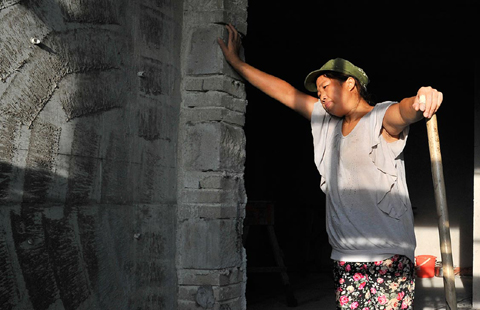Institutional reform needed to fight corruption
Updated: 2014-09-29 17:17
By Li Yang(chinadaily.com.cn)
|
|||||||||||
The power-money transitions in key areas are like tumors in the Chinese economy and society. Removing the tumors cannot treat the disease completely. An institutional reform is needed to change the whole ecology of the power practice in the governance system, says an article in China Business News. Excerpts:
The trial of Liu Tienan, former deputy-director of the National Development and Reform Commission (NDRC) responsible for approvals of resource and energy industries, last week exposed how easily power can bring about huge illegal profits in an environment lacking effective supervision.
A number of senior officials in the government in Shanxi province, which is rich in coal, were sacked and investigated for their alleged graft in connection with the “black gold” buried underground in the north province.
Several senior executives in the State-owned oil enterprises have also been dismissed, since late last year, for taking bribes.
With power being concentrated in only a few officials’ hands, the overlapping area of administrative power, energy and resources creates an ideal platform for officials to turn public wealth into huge illegal personal gains.
Dozens of mid- and lower-level officials would be involved once a senior official falls.
The institutional design of the power structure in as powerful a department as NDRC, and fat areas like coal and oil, should take the blame. The central authority should not feel content with the capturing of these “tigers”, a term President Xi Jinping uses to describe senior corrupt officials, but do more to fill the vacuum left by these transgressors with a power balance mechanism and rule of law.
The NDRC, China’s main economic policy and plan maker, concentrates too much power that can influence whole industries nationwide.
The nepotism and interest alliance between the businessmen and civil servants in Shanxi and SOEs in the oil sector also indicate the weakness in institutional supervision.
Today's Top News
Illegal assembly in Hong Kong leads to clashes
Aggrieved firms 'should go to court'
Sino-Japan ties 'at crossroads'
IPhones 'hidden in luggage'
Foreign experts advise a unified regulatory approach
Ferguson officer shot, police say no protest link
Police seeking Chinese student find a body in car
GOP 2016 presidential hopefuls come to town
Hot Topics
Lunar probe , China growth forecasts, Emission rules get tougher, China seen through 'colored lens', International board,
Editor's Picks

|

|

|

|

|

|





